
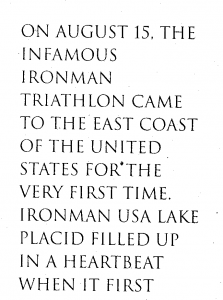

A question that seems to pop up with depressing frequency is whether there are any support groups for triathlon widows. Tongue-in-cheek, to be sure, but beneath the glib sarcasm lurks a very real set of issues.
I would venture that, for the vast majority of married or POSSLQ'd ("persons of opposite sex sharing living quarters") participants in this sport, the union preceded the triathloning, thereby rendering the latter somewhat of a surprise, undoubtedly one of slightly greater weight than the greeting-him-in-your-underwear-after-a-tough-day-at-the-office variety. Meals together on the run or not at all, alarms at 4:45, the sudden disappearance of red meat, and a new Litespeed instead of new carpeting are only a few of the tribulations attendant to a strange activity that is, in statistically demonstrable terms, at least three times as demanding as the kinds of obsessions normal folks in your neighborhood get into on weekends.
You may feel, as many others do, that these are tri-ing times indeed, and, as supportive as you'd like to be, something doesn't feel quite fair about it.
Well.
About fourteen years ago my bride, Cherie, decided to try running a marathon, this at a time when we both had high-pressure positions, putting in 80-hour weeks and traveling some 200,000 miles a year between us. It wasn't easy on her: she'd get up at four in the morning to run in places like Denver in February, and would lace up in the evenings when home to hit the Pacific Coast Highway. We saw even less of each other than we had before, and sometimes the only chance we had to talk was when I'd ride along with her on long weekend runs and periodically hand her water.
Her first marathon was a wonderful experience, and the bug bit her badly: she decided to do more of them, qualifying for Boston a year later. By that time the novelty had somewhat worn off for me, and I confess that there were times when I myself might have been just another problem to be handled as she gamely tried to cope with the new demands she'd added to her life. I know that I rolled my eyes a time or two when training interfered with something I'd planned, and passed the occasional tart comment in response to yet another disruption.
The weather on the morning of the Boston Marathon was dismal. We huddled together miserably against a freezing rain, hoping in vain for some relief prior to the start. When the announcer called for the participants to begin lining up, I stared in wonder and with a small measure of guilt as Cherie stood up, tossed away her warm-up suit and stepped bravely into the teeth of that stinging drizzle clad only in shorts and a singlet while I remained covered. In the fifteen minutes before the gun went off, she began shivering uncontrollably while I watched from the sidelines.
I managed to see her at about a dozen spots along the course. As an increasing proportion of the field struggled, pain etched on their faces, my wife ran steadily. If she felt any pain, it didn't show, and every time I saw her the smile would be wider than before. The strength of her upright posture, the elegance of her stride, even the oh-so-into-it attitude that seemed to shoot off her body were clearly evident to even the most unknowledgeable onlooker. Her last six miles were faster than the first six.
I saw her cross the finish line from high in the bleachers. A volunteer quickly wrapped her in a space blanket and just as quickly left her. Alone in that crowd, Cherie's eyes were closed as she walked slowly forward, her face a picture of the purest serenity, the most radiant inwardness I'd ever seen. In that moment all of the work, sacrifice and determination of the previous eighteen months were telescoped to a pinpoint, all of it swirled together and indistinguishable and as perfect as a mere mortal could achieve.
The power of it floored me, and I had my own epiphany: all I could think about were the times I'd made her life tougher, caused her to doubt what she was attempting without considering the consequences, failed to truly understand the nature of the end toward which she was proceeding. I'd never felt quite so wretched and wondered if she'd ever forgive me.
Cherie's seeming trance lasted only a few seconds, and then she began casting her eyes around frantically. It took me a beat to realize she was looking for me, and when I waved and she spotted me, her features exploded into a smile that could have warmed a small planet. She fought her way through the limping and exhausted mass of bodies, desperate to share the moment with me, and as she gushed her gratitude for how selflessly I'd supported her, I realized that she'd barely noticed, if at all, what I believed to have been those times when I'd not been supportive at all.
Which of course only made me feel worse, and that was the very moment during which I made a solemn vow to go along with every single thing she felt she needed to do in order to continue a pursuit that made her happier than anything else she'd ever tried.
It was the second smartest decision I ever made, and, as happens to us so often, I discovered for myself something so simple and universal that in retrospect it seems blindingly obvious: when she was happy, I was happy. Whatever I could do to smooth the way turned out to be a purely selfish act. Her triumphs became mine, as did her setbacks, but of even greater importance, I finally understood the heart of an athlete who fiercely wanted to be extremely good at what she did. That the pursuit of athletic excellence is as much about mind as body is no longer a cliché for me, but a palpably real truth, and while her ability to get up before dawn and drive down an icy, snow-blown mountain road to a swimming pool an hour away still astonishes me, the reason for it is no longer obscure.
And it's a damned good thing I came to these realizations before she got into triathlon.
Now: what's all of this got to do with you? Maybe nothing, but maybe the same thing it has to do with my parents.
They'd never seen Cherie race, and in muted tones occasionally asked the same kinds of questions we've heard so many times before, variations of "So, how long does she plan to keep this up?" As though triathlon was some kind of momentary aberration to be undertaken once and quickly abandoned, like bungee-jumping or alligator wrestling.
This past summer my parents came to Lake Placid along with my nephew to watch her compete in the inaugural Ironman USA. Despite having seen countless of my videotapes, they'd never had the full, on-site experience, and I think they still haven't quite gotten over it.
The weather for the week prior had been bleak, a disheartening and forbidding mixture of intermittent showers and thick, gloomy clouds. Every athletic shop in the county was sold out of arm warmers by Tuesday, and the talk amongst entrants congregating on the course for familiarization workouts ran exclusively to how to cope with slick roads, wet shoes and the kind of sodden cold that settles with malicious glee in the bones and joints.
Fortunately, the weather was about the only serious problem that threatened the event. Everyone expected the organization of such a complex undertaking in a first-time location to experience teething problems, but it seemed as though Lake Placid had been hosting the Ironman for years and had the routine down cold. Admittedly, this state of affairs was at least partially enabled by the fact that the site of the 1980 Winter Olympics was a near-perfect venue, but that in no way detracted from the admiration that rightfully accrued to the race organizers who, had they been running things in 1980, would undoubtedly have left the world with a better impression of those chaotic games than it actually got.
I used to come to Lake Placid with my family when I was growing up, and it's always been difficult to convince the uninitiated that the same state in which New York City is ensconced could also be home to such pristine alpine splendor. Already word is passing that this might be the most beautiful and dramatic Ironman course outside of the Big Island, redolent of pine and intercut throughout with crystalline water cascading gently right beside many of the roads. Startling vistas appear around nearly every turn, and much of the landscape is dominated by two massive ski jump towers that jut up from the forest and serve as comforting beacons connecting racers out on the course with the central site.
And what could be more thrilling than ending an endurance event on the same speedskating oval on which Eric Heiden stunned the world nearly two decades ago?
As race morning dawned, streaks of light in the eastern sky encouraged racers to dare hope that a break in the weather was imminent. When the clouds began to thin even further, even the most jaded rationalists among the crowd had cause to doubt their conviction that this had to be a coincidence. The sun, visible for the first time in a week, continued to burn through the gloom as it rose, and spirits rose right along with it.
My parents and nephew were mesmerized by the electricity crackling in the air, the raw strength of the athletes assembling on the shore of Mirror Lake, the dizzying blend of anxiety, excitement and anticipation. Later they rode with me as I put three hundred frenetic miles on the rental car circumnavigating the course and trying to intercept Cherie in as many spots as we could. They shared my exhilaration at the turnaround of the first bike loop because her time was so much better than she'd predicted, groaned in dismay as she appeared alarmingly late on the second loop, cheered themselves hoarse as though the sound might speed her through the bike-to-run transition, and ran through an entire roll of film to try to capture forever the singular moment in which she brushed past them on the run only an arm's length away.
Only later did the onlookers begin to discover, as the athletes already had, the almost supernatural phenomenon of the seemingly benign bike course metamorphosing into a snarling beast on the second loop. Even those racers who'd ridden parts of the course for practice were badly shaken as their jellified legs and searing lungs howled in protest during that traumatizing replay, and negative splits were as rare as personal bests would be on that cunningly deceptive course. During the run that followed, many of those who touched a genuine Olympic gold medal placed near the turnaround for luck assumed it had revitalizing powers they would have scoffed at under normal circumstances.
I think my family may have been somewhat troubled by the depth of punishment an Ironman entails, but they forgot it quickly when confronted later that afternoon by the breathtaking sight of their 55-year old daughter-in-law gracefully streaking into the Olympic stadium to a first-place finish in her age group, a loopy smile planted on her face while many around her could only grimace. That she'd missed her target time by about twenty minutes made for an uncomfortable moment initially, the four of us not yet having become fully aware of the toll the unforgiving course had taken on the entire field, but as results drifted in and what she'd accomplished started to make itself evident — her margin of victory over second place exceeded an hour and she'd posted her highest overall finishing position ever — I doubt very much if Cherie's joy could possibly have surpassed theirs.
They no longer ask me how long she's going to keep this up.
The answer to the question of triathlon widowhood doesn't lie in logistics. It isn't about scheduling appointments with each other or apportioning the household tasks or ensuring parity or fairness or equality.
It's about first realizing that, if your loved one aspires to be a triathlete, and especially one of the long-distance variety, you are linked to someone extraordinary and should be mindful of the privilege you've been afforded.
You need to trust me on this one: when you see his face as he crosses the line, your life will change forever, and every obstacle you erected instead of pulling one down will light up in your brain like a billboard. There's already enough guilt and regret to go around…why not exploit an opportunity to avoid some that's so easily predictable?
In the entire history of human relationships, expressing resentment has never once returned a positive benefit. It has never resulted in the creation of desirable behaviors, but instead is usually the seed of increasing bitterness and the stuff of seething anger. Understand that a triathlete in training has an awful lot of time to think, and your influence over the nature of that thinking can be profound. But just as there is plenty of time for her to work a small slight into a major crisis, so is there time for her to dwell appreciatively on the small sacrifice you made so that she could ride 80 miles that night. Whether she spends her two-hour run nursing a growing rage at your sophomoric petulance or contemplating how you demonstrated your devotion when it actually cost you something to do so is, ultimately, entirely in your hands.
One of two people is going to be coming home from that run soon: which one would you rather spend the night blissfully wrapped around?
Easy call, the way I see it.

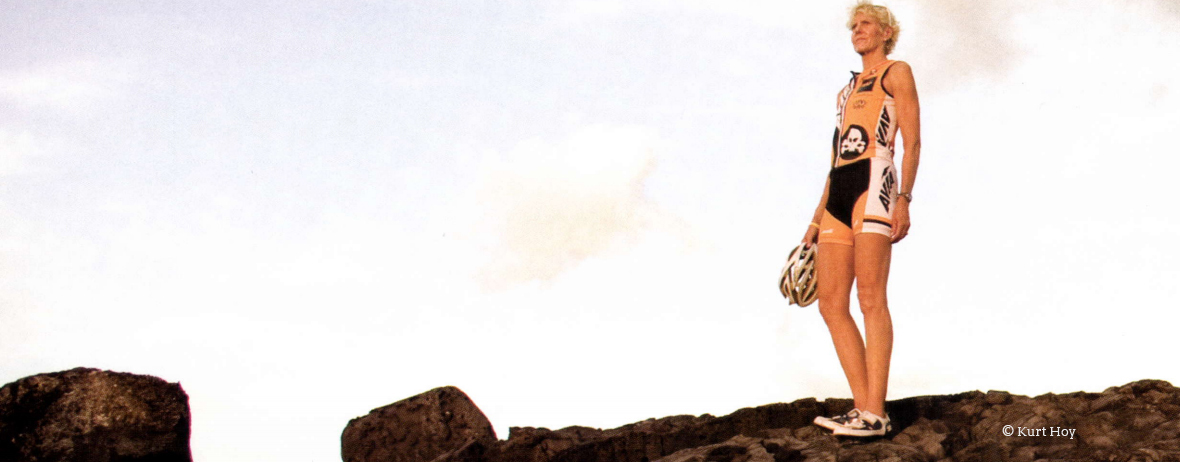

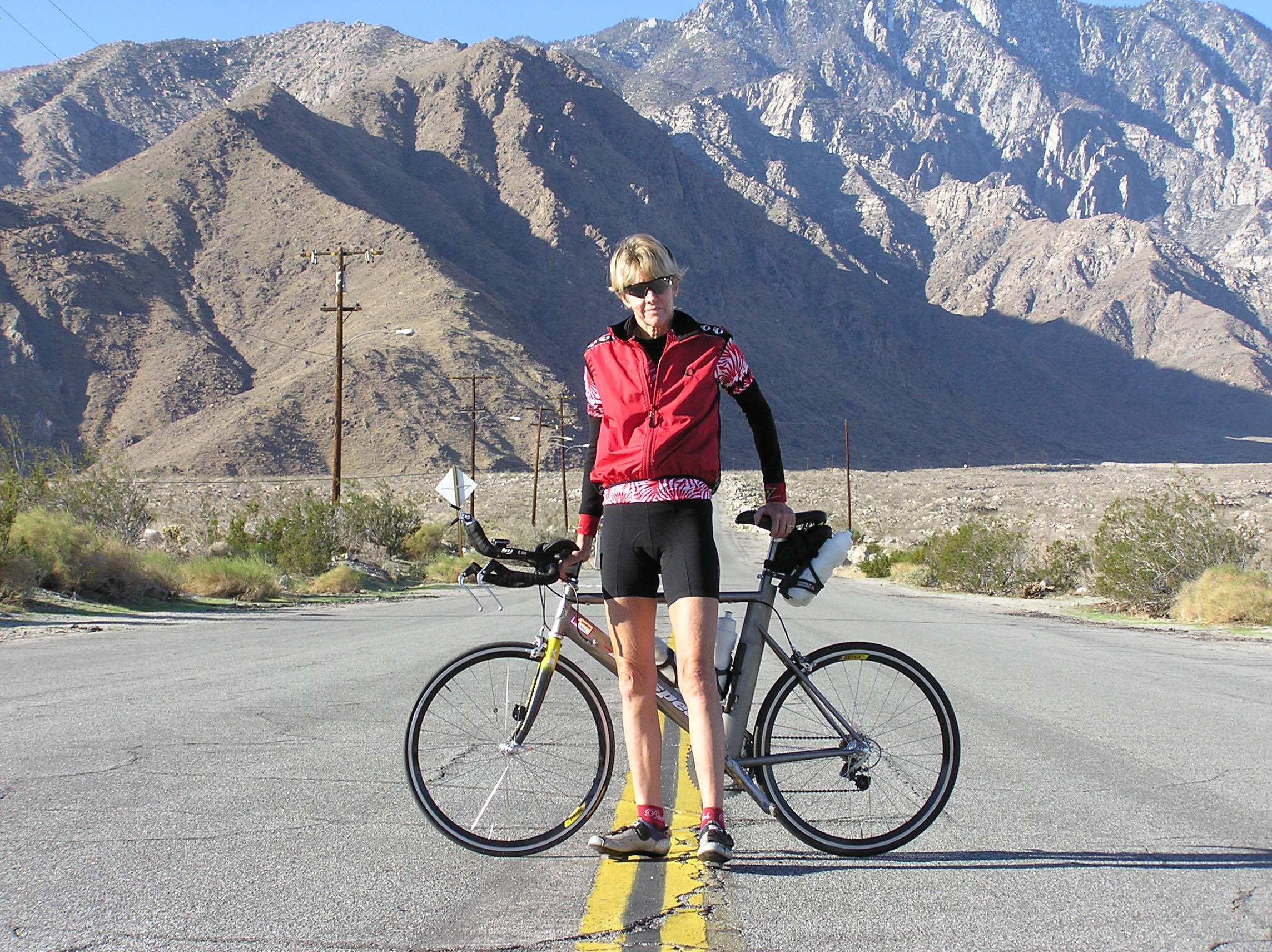
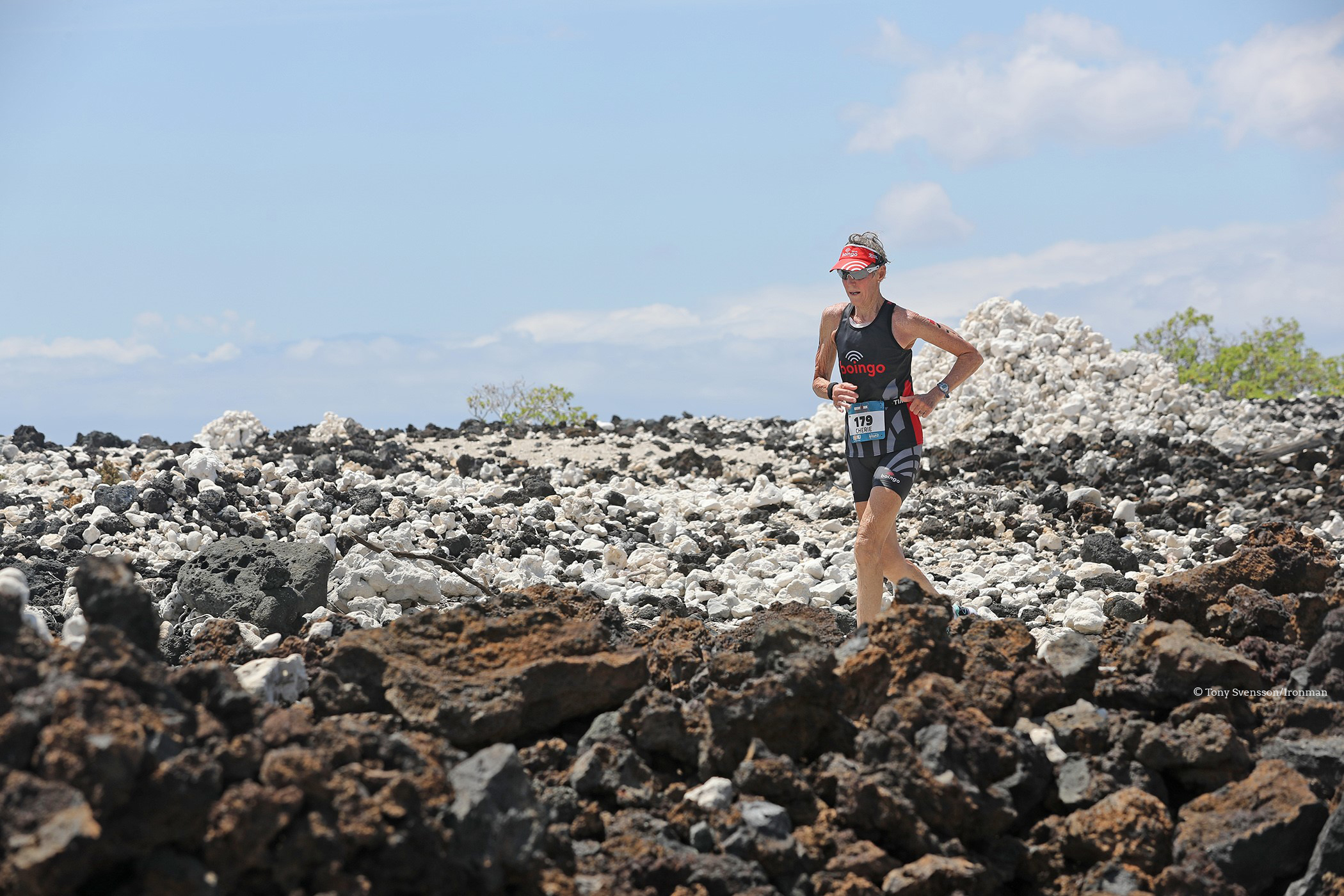

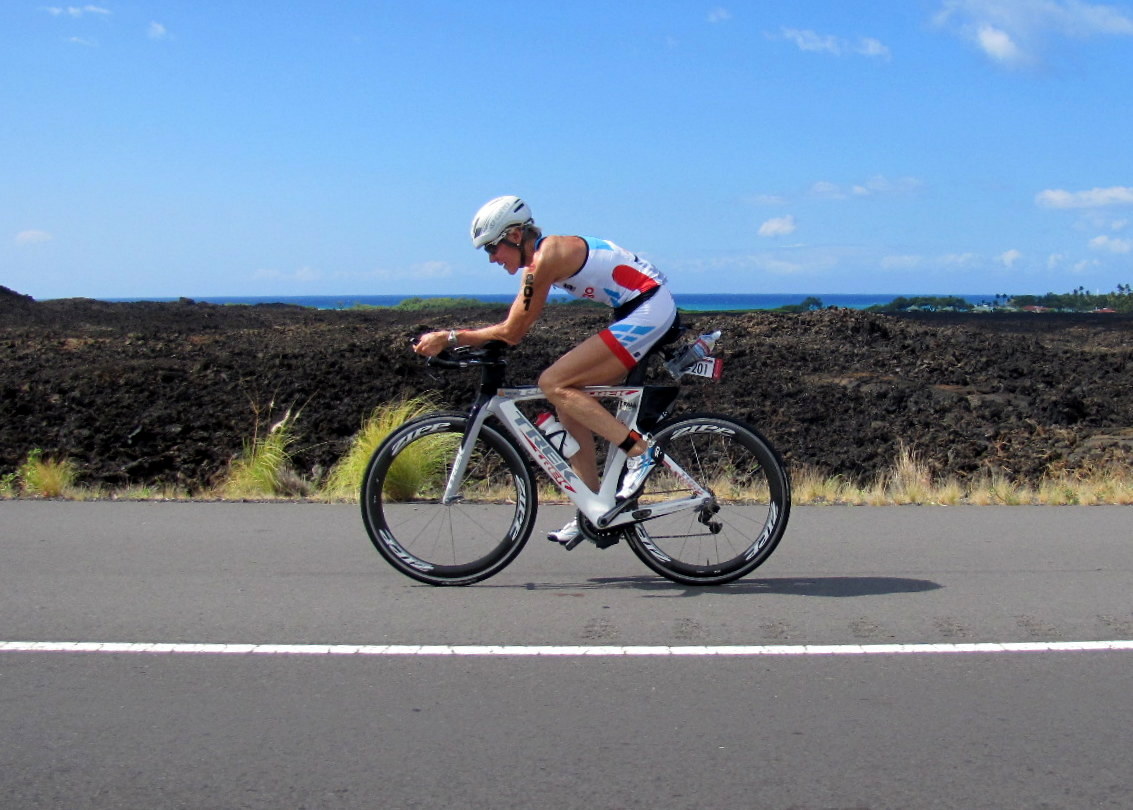
 Review
Review Catering
Catering Party Room
Party Room